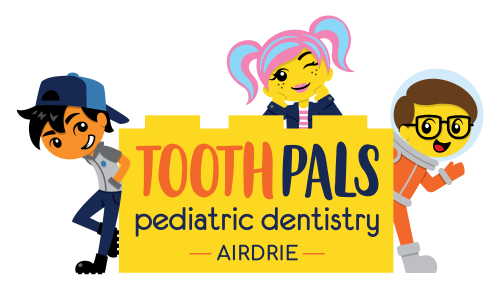Caring for your child’s dental health begins much earlier than parents expect. From teething to thumb sucking, pacifier use, and everything in between, these first stages play significant roles in your child’s dental development. Knowing what to expect and when to visit a pediatric dentist near you will help make the process easier for both parents and children.
When Do Babies Start Teething and What to Expect
Most babies are typically teething between 4 and 7 months old. This is when teeth begin to erupt through the gums and can cause discomfort or pain. Each child is different and every child is unique, but the majority of children obtain their full 20 primary (baby) teeth by around the age of 3.
Signs of Teething:
- Drooling more than usual
- Irritability or fussiness
- Swollen or tender gums
- Chewing on objects
- Trouble sleeping
Although teething is a normal process, it is still painful for infants. Parents often ask about teething remedies safe for infants. Here are some remedies that are safe for infants
| Teething Remedies (Safe for Infants) | What to Avoid |
| Chilled (not frozen) teething ring | Teething gels with numbing agents |
| Clean, cold washcloth to chew on | Hard objects that may damage gums |
| Gentle gum massage with a clean finger | Aspirin or other unsafe medicines |
If your child develops a fever or diarrhea while teething, please check with your child’s dental professional, as these are not typically related to the teething process.
Thumb Sucking: A Common Habit
Thumb sucking is a natural habit that many babies and toddlers use to comfort themselves. While it can be soothing, long-term thumb sucking may affect dental development. Parents can learn more about its impact and safe solutions by visiting a clinic that offers pediatric dentistry in Airdrie services.
Effects of Thumb Sucking on Baby Teeth Alignment:
- Open bite (front teeth do not meet properly)
- Overbite (upper teeth stick out more)
- Changes in the roof of the mouth
- Speech problems in some cases
Most children will discontinue thumb sucking on their own between the ages of 2 and 4. Occasionally, however, with sustained thumb-sucking habits past the eruption of the permanent teeth around age 6, it may cause some dental concerns.
Parents often ask how to stop thumb sucking in toddlers. Here are some gentle strategies
- Provide comfort with some other means (hug, blanket, toy, etc.)
- Praise the child when they are not sucking their thumb.
- Use positive reinforcement instead of punishment.
- Consult a pediatric dentist near you for suggestions if the habit still continues
Pacifier Use and Dental Development
Many parents also wonder: is pacifier use bad for dental development? Pacifiers can certainly help calm infants and young babies as well, but extended pacifier usage can potentially be harmful, similar to thumb sucking.
Possible Dental Effects of Prolonged Pacifier Use:
- Misalignment of teeth
- Narrowing of the upper jaw
- Open bite or crossbite
To limit these risks, it is important to reduce pacifier use after the age of 2 and discontinue pacifier use by age 3. If your child is having difficulty weaning off the pacifier, then speak to a dentist who specializes in pediatric dentistry near you for safe weaning methods.
Preventive Dentistry for Kids
The best way to protect your child’s smile is to plan for early dental care and preventive dentistry for kids in Airdrie will include all the baby checkups and cleaning, and monitoring from a pediatric dentist. It is recommended that your child start having dental visits by the age of 1 or within 6 months of the first tooth.
During the visits, your pediatric dentist will
1) Assess how your child’s mouth and gums are doing
2) Monitor your child’s jaw growth & teeth alignment
3) Provide guidance on their dietary habits
4) Teach parents how to clean baby teeth
Preventive care means catching small issues sooner rather than later so your family can avoid the pain of a larger issue and the high costs of associated treatments a little later.
When to See a Pediatric Dentist
Parents should contact a pediatric dentist near you when
- Your baby is teething and exhibiting signs of pain that conventional home remedies and teething toys aren’t working for
- You have an infant younger than a year; they are still thumb sucking
- If your toddler, younger than the age of 3 is still regularly using a pacifier
- You notice crooked teeth or bite problems
- It is time for your child’s very first dental exam.
A pediatric dentist is expertly trained to address your child’s oral health needs and make the visit as positive, comfortable, and educational as possible for your child and you.
Final Thoughts
By focusing on pediatric dentistry in Airdrie for kids and visiting a pediatric dentist near you, you can ensure your child grows up with healthy, well-aligned teeth. Good dental care at a young age sets the foundation for a lifetime of strong smiles.
Keep Kids Smiling Bright with Expert Care!
At Toothpals Pediatric Dentistry, we focus on keeping your child’s teeth healthy from the very first visit. Our friendly team provides gentle checkups, cleanings, and preventive care in a safe and comfortable setting. We also guide parents on teething, thumb sucking, and pacifier use.
Give your child the best start for lifelong oral health. Schedule an appointment with Toothpals Pediatric Dentistry today!

